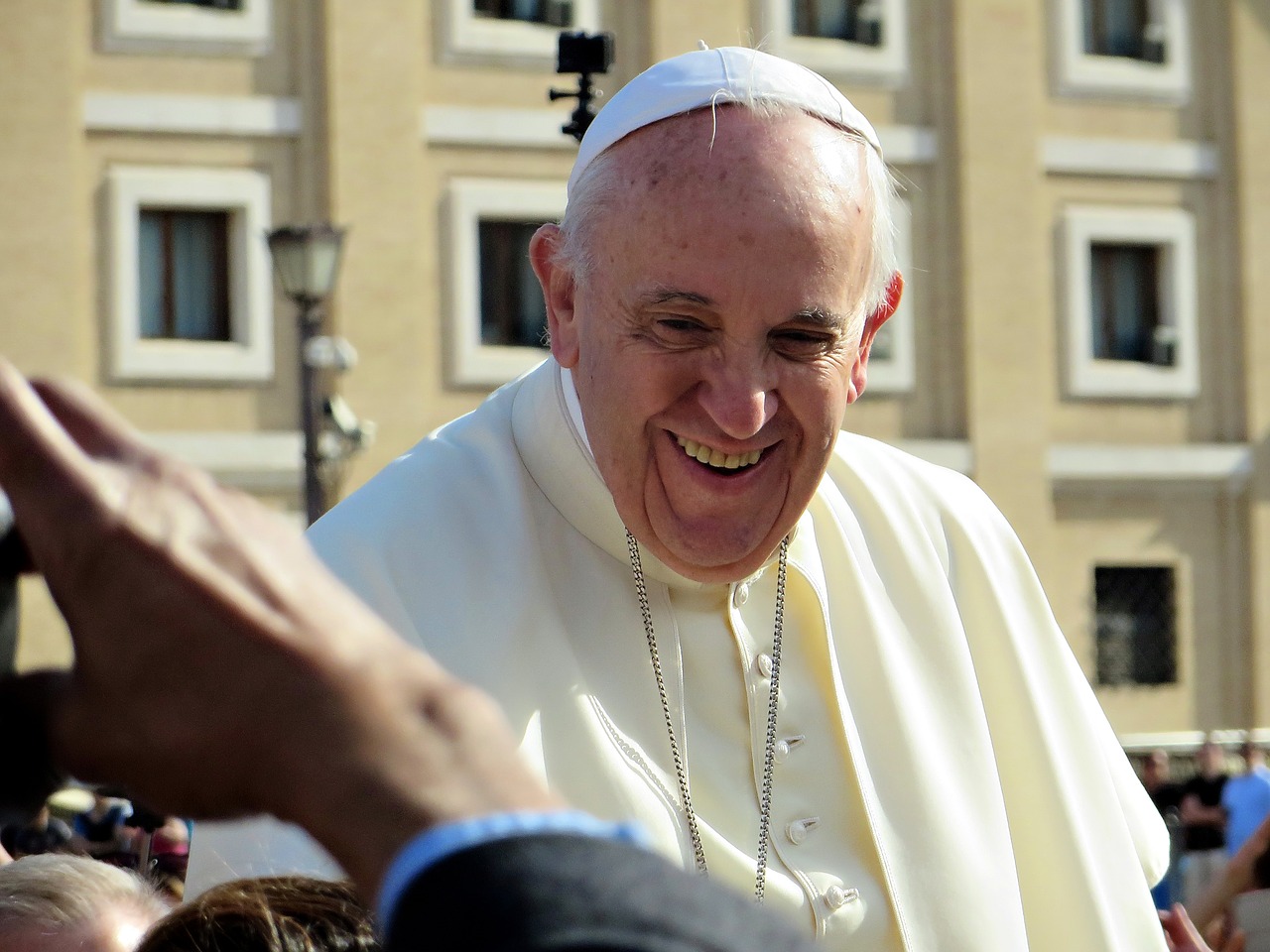
Dear Brothers and Sisters,
On 4 August last year, the 160th anniversary of the death of the Curé of Ars, I chose to write a letter to all those priests who daily devote their lives to the service of God’s people in response to the Lord’s call.
On that occasion, I chose four key words – pain, gratitude, encouragement and praise – as a way of thanking priests and supporting their ministry. I believe that today, on this 57th World Day of Prayer for Vocations, those words can be addressed to the whole people of God, against the backdrop of the Gospel passage that recounts for us the remarkable experience of Jesus and Peter during a stormy night on the Sea of Galilee (cf. Mt 14:22-33).
After the multiplication of the loaves, which had astonished the crowds, Jesus told his disciples to get into the boat and precede him to the other shore, while he took leave of the people. The image of the disciples crossing the lake can evoke our own life’s journey. Indeed, the boat of our lives slowly advances, restlessly looking for a safe haven and prepared to face the perils and promises of the sea, yet at the same time trusting that the helmsman will ultimately keep us on the right course. At times, though, the boat can drift off course, misled by mirages, not the lighthouse that leads it home, and be tossed by the tempests of difficulty, doubt and fear.
Something similar takes place in the hearts of those who, called to follow the Teacher of Nazareth, have to undertake a crossing and abandon their own security to become the Lord’s disciples. The risk involved is real: the night falls, the headwinds howl, the boat is tossed by the waves, and fear of failure, of not being up to the call, can threaten to overwhelm them.
The Gospel, however, tells us that in the midst of this challenging journey we are not alone. Like the first ray of dawn in the heart of the night, the Lord comes walking on the troubled waters to join the disciples; he invites Peter to come to him on the waves, saves him when he sees him sinking and, once in the boat, makes the winds die down.
The first word of vocation, then, is gratitude. Taking the right course is not something we do on our own, nor does it depend solely on the road we choose to travel. How we find fulfilment in life is more than a decision we make as isolated individuals; above all else, it is a response to a call from on high. The Lord points out our destination on the opposite shore and he grants us the courage to board the boat. In calling us, he becomes our helmsman; he accompanies and guides us; he prevents us from running aground on the shoals of indecision and even enables us to walk on surging waters.
Every vocation is born of that gaze of love with which the Lord came to meet us, perhaps even at a time when our boat was being battered by the storm. “Vocation, more than our own choice, is a response to the Lord’s unmerited call” (Letter to Priests, 4 August 2019). We will succeed in discovering and embracing our vocation once we open our hearts in gratitude and perceive the passage of God in our lives.
When the disciples see Jesus walking towards them on the sea, they first think that he is a ghost and are filled with fear. Jesus immediately reassures them with words that should constantly accompany our lives and our vocational journey: “Take heart, it is I; have no fear” (Mt 14:27). This, then, is the second word I wish to offer you: encouragement.
What frequently hinders our journey, our growth, our choosing the road the Lord is marking out for us, are certain “ghosts” that trouble our hearts. When we are called to leave safe shores and embrace a state of life – like marriage, ministerial priesthood, consecrated life – our first reaction is often from the “ghost of disbelief”. Surely, this vocation is not for me! Can this really be the right path? Is the Lord really asking me to do this?
Those thoughts can keep growing – justifications and calculations that sap our determination and leave us hesitant and powerless on the shore where we started. We think we might be wrong, not up to the challenge, or simply glimpsing a ghost to be exorcized.
The Lord knows that a fundamental life choice – like marriage or special consecration to his service – calls for courage. He knows the questions, doubts and difficulties that toss the boat of our heart, and so he reassures us: “Take heart, it is I; have no fear!” We know in faith that he is present and comes to meet us, that he is ever at our side even amid stormy seas. This knowledge sets us free from that lethargy which I have called “sweet sorrow” (Letter to Priests, 4 August 2019), the interior discouragement that hold us back from experiencing the beauty of our vocation.
In the Letter to Priests, I also spoke about pain, but here I would like to translate the word differently, as fatigue. Every vocation brings with it a responsibility. The Lord calls us because he wants to enable us, like Peter, to “walk on water”, in other words, to take charge of our lives and place them at the service of the Gospel, in the concrete and everyday ways that he shows us, and specifically in the different forms of lay, priestly and consecrated vocation. Yet, like Saint Peter, our desire and enthusiasm coexist with our failings and fears.
If we let ourselves be daunted by the responsibilities that await us – whether in married life or priestly ministry – or by the hardships in store for us, then we will soon turn away from the gaze of Jesus and, like Peter, we will begin to sink. On the other hand, despite our frailty and poverty, faith enables us to walk towards the Risen Lord and to weather every storm. Whenever fatigue or fear make us start to sink, Jesus holds out his hand to us. He gives us the enthusiasm we need to live our vocation with joy and fervour.
When Jesus at last boards the boat, the winds die down and the waves are calmed. Here we have a beautiful image of what the Lord can do at times of turbulence and tempest in our lives. He stills those winds, so that the forces of evil, fear and resignation no longer have power over us.
As we live out our specific vocation, those headwinds can wear us down. Here I think of all those who have important responsibilities in civil society, spouses whom I like to refer to – not without reason – as “courageous”, and in a particular way those who have embraced the consecrated life or the priesthood. I am conscious of your hard work, the sense of isolation that can at times weigh upon your hearts, the risk of falling into a rut that can gradually make the ardent flame of our vocation die down, the burden of the uncertainty and insecurity of the times, and worry about the future. Take heart, do not be afraid! Jesus is at our side, and if we acknowledge him as the one Lord of our lives, he will stretch out his hand, take hold of us and save us.
Even amid the storm-tossed waters, then, our lives become open to praise. This is the last of our vocation words, and it is an invitation to cultivate the interior disposition of the Blessed Virgin Mary. Grateful that Lord gazed upon her, faithful amid fear and turmoil, she courageously embraced her vocation and made of her life an eternal song of praise to the Lord.
Dear friends, on this day in particular, but also in the ordinary pastoral life of our communities, I ask the Church to continue to promote vocations. May she touch the hearts of the faithful and enable each of them to discover with gratitude God’s call in their lives, to find courage to say “yes” to God, to overcome all weariness through faith in Christ, and to make of their lives a song of praise for God, for their brothers and sisters, and for the whole world. May the Virgin Mary accompany us and intercede for us.
Rome, Saint John Lateran, 8 March 2020, the Second Sunday of Lent
Pope Francis
Retrieved from: http://w2.vatican.va/content/francesco/en/messages/vocations/documents/papa-francesco_20200308_57-messaggio-giornata-mondiale-vocazioni.html
